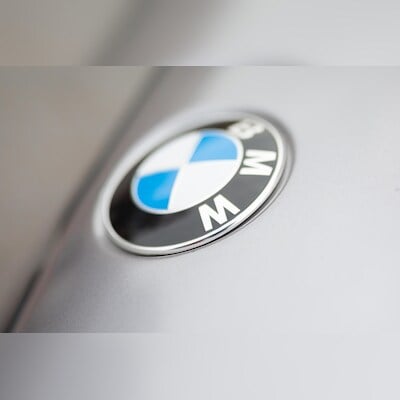BMW shares closed down 8.7 percent in Frankfurt, reducing the company’s market valuation by around 5 billion euros. | Photo: Shutterstock
German carmakers are sinking deeper into a crisis that undermines the future of the country’s most important industry, with BMW AG warning that its profits will be hit by a costly brake problem and Volkswagen AG scrapping job protections that workers have enjoyed for three decades.
BMW shares plunged after the company revealed rising costs for a recall affecting 1.5 million vehicles due to faults in its Continental AG brake systems. VW confirmed plans to end job guarantees in Germany, lamenting the country’s loss of competitiveness.
Tuesday’s double whammy dealt another blow to Germany’s economy, which has been reeling since Russia cut off supplies of cheap gas. The country’s carmakers have struggled to transition to electric vehicles, and BMW said weak demand in China poses another threat to sales and profits.
Last week, VW shocked German workers with plans to close factories in the country for the first time in its nearly nine-decade history. The corporate bombshell came a day after a political wake-up call following state election results in which populist parties made big gains.
The decision to end job security agreements sets VW up for long clashes with employee representatives. Cuts at the Wolfsburg-based company are more difficult to carry out than elsewhere. Half of the seats on its supervisory board are occupied by employee representatives, and the German state of Lower Saxony, which holds a 20% stake, often sides with union bodies.
“We need to get Volkswagen to a point where we can reduce costs in Germany to a competitive level,” says Gunnar Kilian, a member of VW’s staff council. The company needs to be able to “invest in new technologies and products on its own.”
The carmaker, which employs nearly 300,000 people in Germany, has defended its plans to close plants, saying falling car sales have left it with two extra factories.
Now BMW, a rare bright spot among Germany’s industrial bulwarks, has had its wings stripped by Continental, another example of a century-old company struggling to navigate the transition to electric vehicles. The automaker expects its profit to fall significantly below last year’s 17.1 billion euros ($18.9 billion), while it forecasts its car-making operating margin will be as low as 6%, compared with a previous low of 8%.
According to a BMW spokesman, while the cars remain safe, drivers may have to press the brake pedal harder and some assistance systems do not work as effectively. For Continental, the problems will be a drag on plans for a possible stock market flotation of its car business, the latest step in a series of troubled attempts to revive revenues.
BMW shares closed down 8.7 percent in Frankfurt, reducing the company’s market valuation by about 5 billion euros. Continental shares fell 10.5 percent and VW shares fell 3.4 percent. Continental said it supplies the system to other carmakers, although only BMW is affected by the problem because of a specific configuration it uses.
The profit warning reveals the scale of the damage caused by faulty brakes, which have already been affected by vehicle recalls earlier this year. In total, some 1.2 million vehicles subject to the recall have been delivered to customers, while around 320,000 remain with the manufacturer, a BMW spokesman said.
The problems are a setback for a company that has fared better than some of its rivals in the electric vehicle market. BMW overtook Tesla Inc. to lead Europe’s electric vehicle market for the first time in July.
BMW, which sold 2.25 million vehicles last year across its Mini and production brands, is looking at whether the repairs can be done through a software update or whether physical repairs are needed, the spokesman said. The review is expected to be completed this year, with a possibility of extending into 2025.
For Continental, the tire recall is another blow to a company already facing a host of problems. In addition to a sweeping restructuring that is leading to the loss of 7,000 jobs at its car unit, European Union authorities raided the company in January over suspicions of price-fixing with other tire makers.
More recently, its profits have begun to decline. The company has come under scrutiny for its role in the diesel emissions scandal and was fined €100m in April for failing to prevent its staff from participating in the scandal.
According to Gillian Davis, an automotive analyst at Bloomberg Intelligence, repairing the brake system problems could cost Continental up to 75 million euros.
BMW, which had previously forecast a slight drop in pretax profit, said the recall would result in additional warranty costs in the low triple-digit millions of dollars in the third quarter. The carmaker said it was currently weighing compensation claims against Continental.
First published: September 10, 2024 | 11:33 PM IS
Disclaimer:
The information contained in this post is for general information purposes only. We make no representations or warranties of any kind, express or implied, about the completeness, accuracy, reliability, suitability or availability with respect to the website or the information, products, services, or related graphics contained on the post for any purpose.
We respect the intellectual property rights of content creators. If you are the owner of any material featured on our website and have concerns about its use, please contact us. We are committed to addressing any copyright issues promptly and will remove any material within 2 days of receiving a request from the rightful owner.

